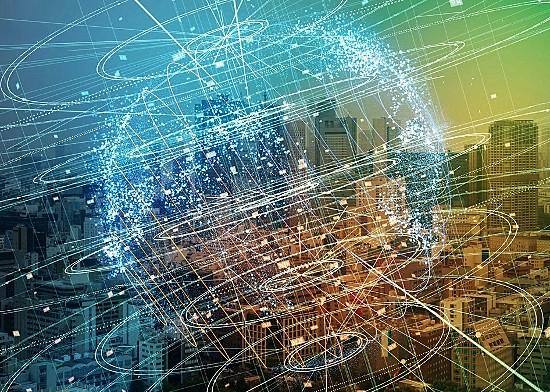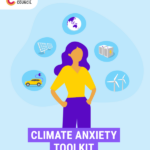The U.S. Central Intelligence Agency tracks the number of people by country with access to the Internet. Approximately 900,000 have been joining daily since 2018, accelerating because of the global pandemic. Today, more than 5 billion have Internet access. More than ever we are using the Internet for work, education, communication and entertainment.
But wait. If you think the 5 billion number is considerable, by 2032 the number will grow to 8 billion equivalent to the current world population total today. More than 90% of us will be connected through the Internet. Not only will we have access, but we will be able to upload and download information at speeds that just twenty years ago would have been considered only available to a few Fortune 500 companies.
This revolution in connectivity is happening because of the arrival of ground-based 5G connectivity, one-hundred times faster than 4G, and ten times faster than the average broadband connection, and the emergence of space-based low-Earth constellations of satellites providing connectivity from anywhere on Earth. Leading the pack is SpaceX’s Starlink. Soon to follow are Kuiper from Amazon, E-Space, Iridium, Telesat, OneWeb, LeoSat, and China’s Hongyun.
The expansion of 5G connectivity and its successor, 6G (one hundred times faster than 5G) will mean that anyone with an inexpensive mobile phone will be able to connect at warp speed. And the same will be true for the trillions of Internet-ready devices that will help us sense and understand more of the world around us.
What will this mean for humanity?
- A revolution in education even more than we see today with tools like Google and Wikipedia. We are talking about continuous online learning, much of it offered by open universities and schools for free.
- A revolution in the way we work which we are already seeing in the face of the pandemic. The idea of being a permanent digital nomad will be increasingly an option for tens of millions. For employers, the ability to dip into an online talent pool will change the nature of employment and jobs even more than the Gig economy is doing today. It won’t matter where you live. The work will get done from anywhere and employers will seek and find the best persons for every type of job. Will companies need corporate headquarters in this new high-speed, interconnected world? Increasingly, less and less. The future of corporations will be distributed.
- A revolution in medicine is already underway forced on us by the pandemic. But with ubiquitous high-speed connectivity, robotic surgery, and electronic patient records, healthcare will look very different. The ability to bring the best minds and technologies together to fast-track solutions for a medical crisis like a virus outbreak has already been demonstrated with COVID-19. But if and when there is the next outbreak expect an even higher-speed response fuelled by connected researchers working in collaboration, and pharmaceutical companies more nimble than at any time in the past.
- A revolution in how and where we seek entertainment has been going on over the last decade. Streaming has become possible because of Internet connectivity. And as good as streaming services are today, imagine with 5G and 6G connectivity, what these experiences can become in the future, more immersive and interactive. For gamers, (I am not one of them although there are more than one billion today), the promise of warp speed sounds positively Star Trekkian. Is the holodeck experience soon to become a reality?
- A revolution in how we approach climate change and other environmental challenges. There needs to be a better way to advance our mitigation and adaptation efforts concerning climate change than annual COP events which appear to be increasingly ineffective. since COP21, the one that brokered the Paris Climate Agreement. The arrival of a globally interconnected species covering all of the continents of the world (yes even Antarctica) will give a voice to everyone, not just governments and corporations, in the battle against global warming. If governments and corporations fail to act, then citizens’ initiatives through online collaboration will fill the void helped by high-speed connectivity, and become the way we turn the planet around.








